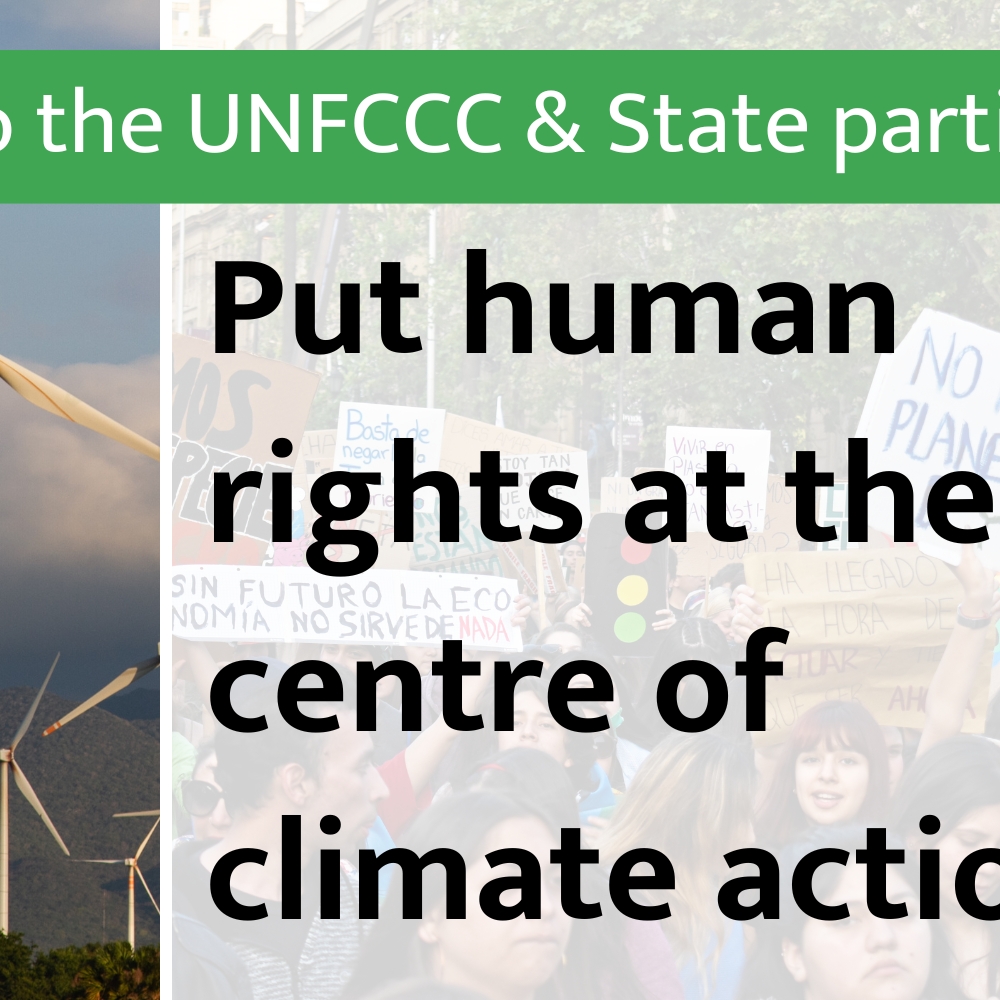COP27: Over 200 organisations call on UNFCCC Secretariat & State parties to put human rights at the centre of climate action

BHRRC
Today, the Business & Human Rights Resource Centre and Indigenous Peoples' Rights International (IPRI), together with over 200 partners released an open letter asking the Secretariat of the United Nations Framework Convention on Climate Change (UNFCCC) and State parties to put human rights at the centre of the energy transition at COP27.
The signatories form a broad and diverse coalition, from those concerned about the human rights impacts of extraction of transition minerals and of renewable energy projects, to those protecting human rights defenders that are facing attacks, but all of whom are concerned about the lack of attention on human rights within the current climate conversation. The signatories include Indigenous Peoples' rights, women's rights, labour rights, land rights, environmental, climate, and human rights organizations and movements from all regions.
The core message of the letter is that the energy transition needs to be just, in particular for Indigenous and other frontline communities, otherwise it will continue to be resisted, delayed, and will ultimately fail. The signatories are challenging the climate agenda that maintains existing industrial models, is opening the door to irresponsible investments, and is expecting communities that contributed the least to the climate crisis to bear the brunt of the transition, without benefiting from it and without being able to shape it.
Read the letter
COP27: Over 200 organizations call on UNFCCC Secretariat & State parties to put human rights at the centre of climate action